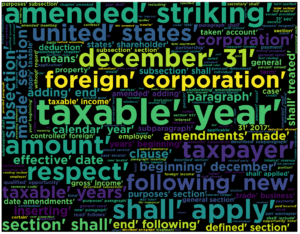This post was certainly not meant to be next, but here it is. I am working on a project that may very well take me a year to complete maybe longer depending on demands. I am also taking this blog into python which was not meant to happen for a while as i would like to get every R post in this blog mirrored with python as well.
Monthly Archives: March 2018
I’m Spuriously Confounded
Published March 5, 2018 / by shep2010 / 1 Comment on I’m Spuriously ConfoundedBefore i can move to the next post i need to cover some tough problems for statistics and more specifically, regression.
All of the work we do in statistical learning is based on the fact we can predict y based on x. If i eat 10,000(x) calories a day i will be fat(y) unless i am an Olympic swimmer apparently, so it does not always hold true, but with just one dependent and one independent variable, it would appear to be an easy answer. Now if i added physical activity to the mix, fat or not fat might be more accurate. Every now and then you will hear about a “study” that some new claim is made from, and the world falls apart for a few days talking about nothing else. My most recent favorite post is diet soda makes you fat, gives you cardiovascular disease, hypertension, metabolic syndrome and type II diabetes. Whether you believe that or not, and for the sake of argument the article does not mention level of activity per day, calories of food consumed per day, you know, lots of other stuff that could contribute. The study appears to make the claim that diet soda all by itself will cause all of these health problems. Peter Attia has started to write about the problems with these studies and the problems with them.
Continue reading
Logistic Regression 1.
Published March 4, 2018 / by shep2010 / 1 Comment on Logistic Regression 1.I learned logistic regression using SPSS, which if you have no plans to use SPSS in life its sort of a waste of time. My professor said “i don’t know how to do that in SPSS” a lot, professor also said look it up on google a lot too. I expected better from Harvard Extension, but after i found out how easy it is to teach a class there i suddenly wasn’t surprised. Point being, do as much research on instructors and professors before had as you possibly can, if there is no public data or this is the their first or second year teaching, maybe pass for something else. The class assembled and demanded a refund from Harvard btw, Harvard is a for profit private school, they did not amass a 37 billion dollar endowment by issuing refunds, so, buyer beware, and we did not get our money back.
Continue reading
Linear Regression Prediction
Published March 2, 2018 / by shep2010Yeah, levels were cute at Christmas i’m over it, lets do some prediction.
This whole series of posts started because the regression and data from the mtcars test data provided was useless as predicting the mpg of my truck, looking at the dataset it is not hard to figure the dataset is useless for any modern vehicle, to be fair it was not meant to be.
Continue reading
Multiple Linear Regression, which model? Level 206-ish
Published March 1, 2018 / by shep2010From the last post, we have a dataset, now lets do something with it.
Continue reading
Multiple Linear Regression, Real, and Recent MPG Data – Data Engineering
Published March 1, 2018 / by shep2010You were warned! If you have ever sat in on a single data science talk you probably learned that the data engineering phase of a project will take 80% of your time. This is an anecdotal number, but my experience to date seems to reenforce this number. On average it will take about 80% of whatever time you have to perform the data engineering tasks. This blog is going to likely prove that, though you will not have had to do the actual work, just copy and paste the code and run it. You will however get an idea of the pain in the ass you are in for.
I am going to approach this post and the scripts exactly the way i came to the dataset, so i will remove rows, then learn something new and remove some more rows or maybe add them back. I could simply put the data engineering at the top, and not explain anything but that is not how the world will work. The second, third, forth, one hundredth time you do this you will have the scripts and knowledge. With any new dataset, curiosity and exploration will make the process of modeling much easier.

